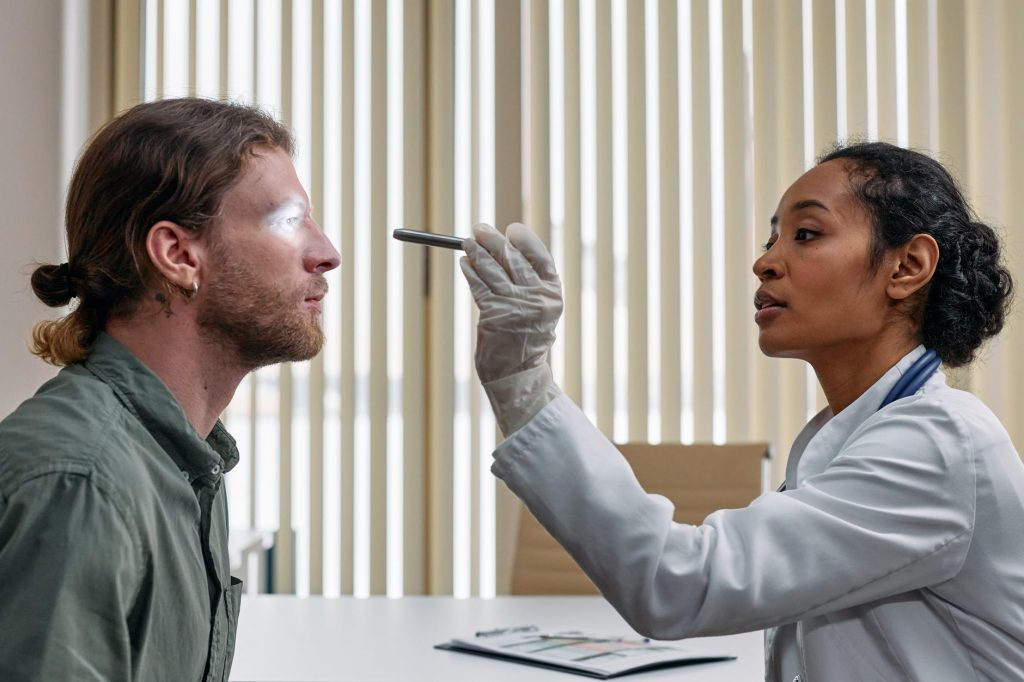Most people think that eye exams are only for determining visual acuity. The truth is, many things can be determined by examining your eyes. Routine eye exams help detect certain diseases in the early stages when they are most easily corrected or treated. Conditions detected during an exam may include diabetes, glaucoma, macular degeneration, cataracts, and dry eye.
Individuals in certain professions are even more at risk than the general population for developing diseases of the ocular system. These professions include factory workers, truck drivers, construction workers, miners, and others whose jobs expose them to harmful environmental conditions that could damage their eyesight. Therefore, it is recommended that these individuals have yearly eye exams at the very least.
How Can I Schedule an Exam?
Eye exams can be performed by your primary care physician or ophthalmologist, though it is probably best to see an optometrist for a routine exam. An optometrist is professionally trained to determine if you need glasses to correct your vision and if you are at risk for developing certain diseases of the eyes.
There is no age requirement or upper limit to how often one should have an eye exam. Some people may need to have yearly exams, while others only require them every so often, depending upon their family history. A doctor can help you determine your needs based on your age, occupation, family history, etc.
Eye examinations are painless and take approximately 30 minutes. First, the doctor will ask you to read letters on an eye chart to determine your visual acuity, and then they will use different testing instruments to view the internal structures of your eyes for signs of disease. If there is any evidence of ocular disease, the doctor will refer you to a specialist or perform any necessary testing.
What If I Need More Than Glasses?
Eye examinations can reveal the first signs of many diseases and conditions that could lead to blindness if not treated properly and in time. Routine exams can prevent this from happening by catching those diseases early on when treatment is effective.
If you are in the habit of having yearly exams, it is unlikely that your doctor will find anything serious. Most likely, all your results from a routine exam will come back normal, and you can take this information with you when you meet with your eye insurance provider to purchase new glasses or contacts at a discounted price.
There are a few diseases, though, that even routine exams will reveal. The most common of these diseases is myopia or nearsightedness. This condition can be easily corrected with glasses, and anyone who wears contacts already knows that they have this condition. If you were to develop hyperopia or farsightedness, your doctor might recommend prescription glasses or contacts as well as inserts such as bifocals or trifocals.
If you develop astigmatism, the doctor may recommend eyeglasses with cylindrical lenses to correct your vision. However, if this condition goes untreated, you could eventually lose your eyesight completely. This is a serious issue that should not be ignored.





